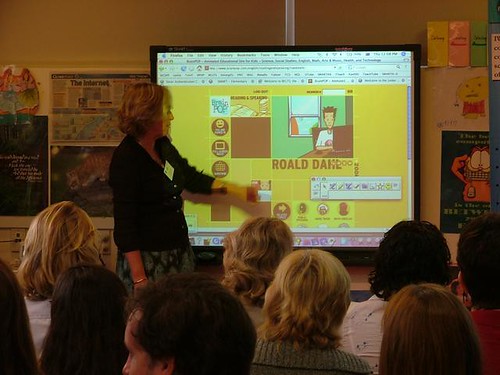Interesting article from eSchool News…
A delegation led by the Consortium for School Networking (CoSN) recently toured Scandinavia in search of answers for how students in that region of the world were able to score so high on a recent international test of math and science skills. They found that educators in Finland, Sweden, and Denmark all cited autonomy, project-based learning, and nationwide broadband internet access as keys to their success.
What the CoSN delegation didn’t find in those nations were competitive grading, standardized testing, and top-down accountability—all staples of the American education system.
and this bit…
Unlike in the United States, which has taken the opposite approach, Scandinavian countries have established national curriculum standards but have set fairly broad mandates, letting authority trickle down as close to the classroom as possible. Local school officials have the flexibility to provide education services according to their students’ unique needs and interests, as long as the basic policy framework is followed.
Therefore, teachers are extremely autonomous in their work. So are students. For example, internet-content filtering in the three countries is based largely on a philosophy of student responsibility. Internet filters rarely exist on school computers, other than for protection from viruses or spam. As a school librarian in Copenhagen said, “The students understand that the computers are here for learning.”
Julie Walker, executive director of the American Association of School Librarians, said these countries see students as having “the filter in their heads.”
Walker also noted that while “the U.S. holds teachers accountable for teaching, here they hold the students accountable for learning.”
Not sure what else to add. Great article.

 I don’t normally make requests like this but if you are reading this and you teach using any sort of Interactive Whiteboard, I have a small favour to ask…
I don’t normally make requests like this but if you are reading this and you teach using any sort of Interactive Whiteboard, I have a small favour to ask…